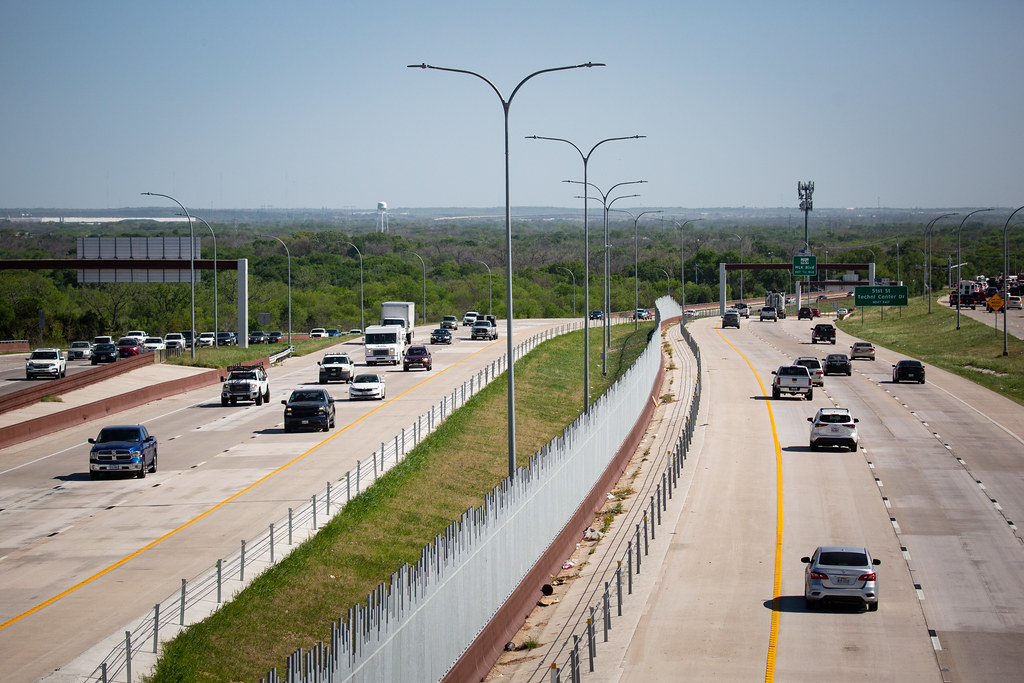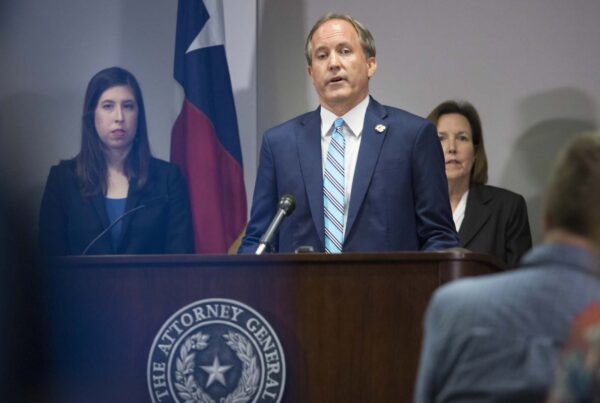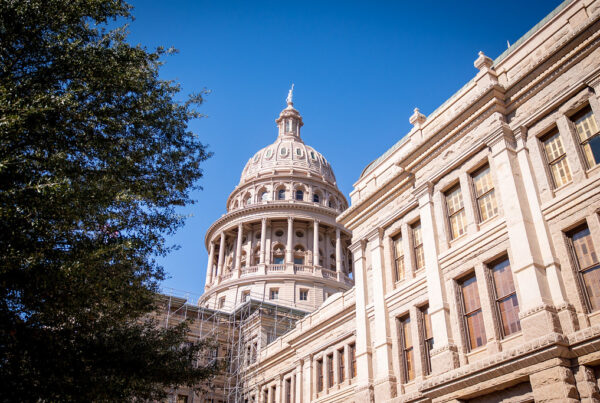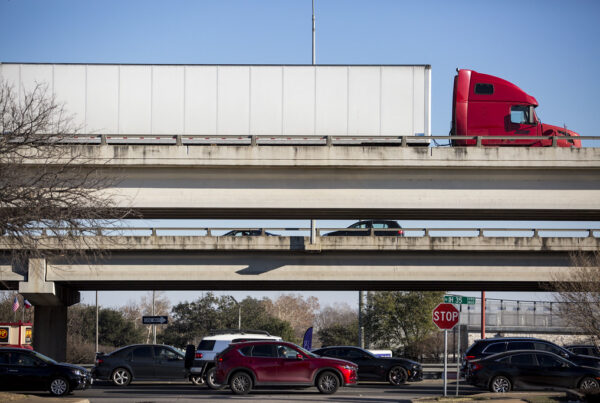Earlier this month, on the floor of the Texas House, Palestine Republican Cody Harris spoke about HB 3729, a piece of legislation that could impact tens of millions of Texans.
He was brief: “Members, it’s time to end mandatory vehicle inspections,” he said in an unanimated voice, “and that’s exactly what this bill does.”
“Move passage,” he added while pulling away from the mic.
As Harris began the trip back to his seat, Houston Democrat Jon Rosenthal stepped to the podium on the opposite side of the House floor, interrupting Harris mid-stride with a request: “Will the gentleman yield for some questions?”
An engineer by training, Rosenthal raised the obvious concern about getting rid of vehicle safety inspections.
“Doesn’t it worry you at all that you might be on the road with somebody whose tires are poor or brakes failing, and it starts to rain?” he asked Harris. “Doesn’t that seem dangerous to you?”
Defending his bill, Harris talked about how the majority of states in America don’t require vehicle safety inspections of any kind and also that even if his bill passes, about half of all Texan drivers would still need to get regular emissions tests.
Harris also focused on the principle of small government, something made clear when Rosenthal questioned him about other state-mandated vehicle requirements.
“We still require insurance on these vehicles, which is a much higher cost, right?” Rosenthal asked. “Why do we require that and not safety inspections?”
Safety inspections are an annual cost of $7, a price set by the state. The average Texan pays almost $2,000 a year for car insurance. This observation isn’t lost on Harris.
He shrugged his shoulders and smirked: “We’ve got to start somewhere.”
On Sunday, the Legislature approved a final version of HB 3729. It’s now headed to Gov. Greg Abbott’s desk.
‘A scam’
The legislative battle on vehicle inspections has been waged by Texas Republicans.
“It started with the 2017 Legislature,” Greg Cole, chairman of the Texas Vehicle Inspection Association, told the Texas Standard. “Then-Senator Don Huffines presented the first bill that would eliminate safety inspections.”
SB 1588 managed to make it through Texas’ conservative Senate but ended up languishing in the House Calendars Committee until the session expired. Huffines, who lost his bid for re-election in 2018, remains passionate about the issue.
“I am quite familiar with the car business, and trust me when I tell you: Vehicle inspections are a scam,” Huffines wrote in a recent op-ed. “This is not about safety or just about money; it’s about the most irreplaceable thing you have: your time wasted while getting an inspection.”
The bill eliminating vehicle inspections, #HB3297, has now passed the TX House and Senate.
Thank you to authors @CodyforTexas, @SamHarless126, @GoldmanCraig, @RepMattSchaefer, and @BriscoeCain for your leadership in the TX House on eliminating vehicle safety inspections!
— Don Huffines (@DonHuffines) May 22, 2023
In a statement to the Texas Standard, Harris wrote: “Texans are responsible, fiercely independent, and I trust them to keep their cars and trucks safe while on the road. It’s time for Texas to end this unnecessary burden.”
The issue of safety
In discussions about HB 3729, there’s been a big focus on safety – whether or not Texas drivers will be at risk if mandatory inspections go away.
“You have a hard time convincing me if we eliminate safety inspections, if people are still going to still take care of their cars,” Cole said.
He points to a University of Texas Transportation Center study from 2018 that strongly recommended keeping the state’s inspection program intact.
“Cars are very sophisticated and technical, and people just don’t have as much knowledge of vehicles as they used to,” Cole told the Texas Standard.
The study also estimated that inspection station owners would lose out on $131 million per year should vehicle inspections end.
Supporters of HB 3729 and similar efforts have their own set of studies to point to, like one from North Carolina in 2008 that found “no evidence exists showing the safety inspection program is effective.”
Fran Rhodes, president of True Texas Project, a conservative advocacy group, explained her support of HB 3729 matter-of-factly: “Anything we can do to shrink government involvement in individual lives is something that we would support.”
For inspections, Texans currently pay $7 to the inspectors and a $7.50 fee to the State of Texas at the time of registration.
Getting rid of vehicle inspections would have no impact to the state’s finances, because it’d also “establish an inspection program replacement fee to be imposed at the time of vehicle registration,” according to a fiscal note from the Legislative Budget Board.
Rhodes said she’d rather the state not still get its annual $7.50 from drivers, but “still, it will eliminate the hassle, the irritation, the waiting in line for consumers. And it’s just one less government thing that we have to deal with.”
The empresarios
In a North Austin parking lot, Jenni Carter, the owner of Sticker Stop, a chain of inspection stations in the Texas Hill Country, described small business ownership in the current economy: “Employee cost is very high.”
The latest data show that in Austin, the unemployment rate is 3.5%, meaning that nearly everybody who wants a job already has one. To attract workers, businesses will often raise wages and pass the cost off to consumers – but that’s not possible for vehicle inspectors.
“Inflation’s gone up, but the price of inspection has not gone up,” Carter said.
In the Lone Star State, the price of vehicle inspections are decided not by business owners, but by elected officials. The Texas Legislature has set the standard, annual inspection price at $7, money that would go back into the pockets of Texans if HB 3729 becomes law.
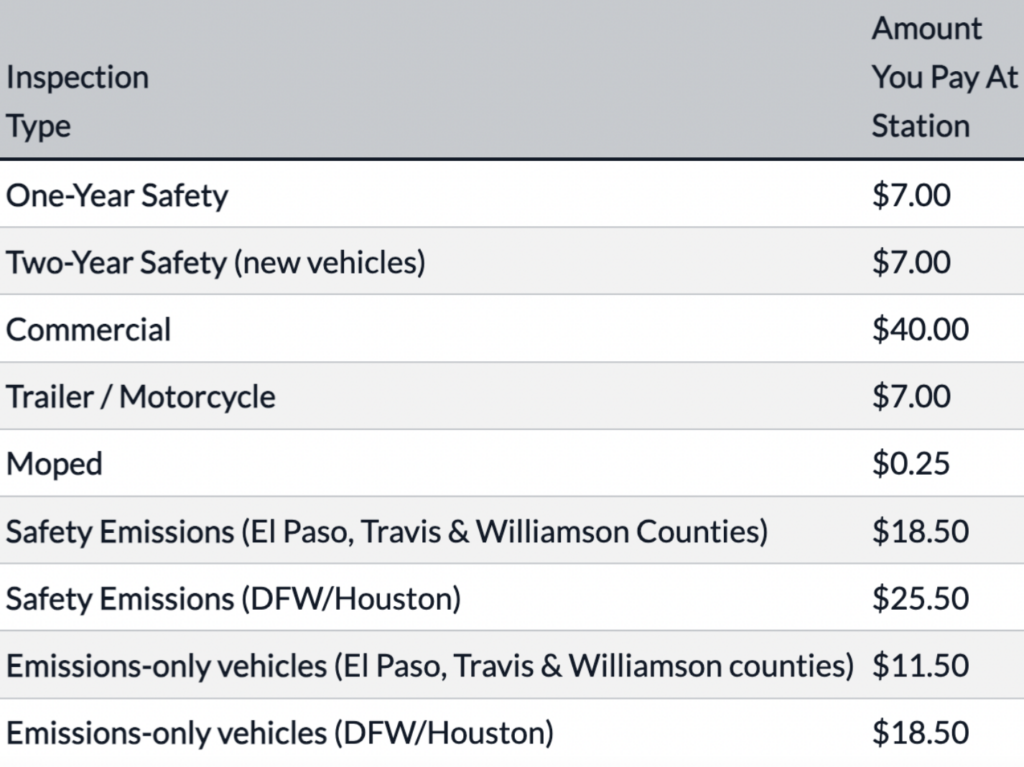
Inspection costs, via the Texas Department of Public Safety
Customers in counties like Dallas and Harris would still have to pay for annual emissions checks.
“In Dallas, Fort Worth and Houston, we get $25.50 for the combined inspection,” explained Greg Cole. “If you take $7 away and it goes to $18.50, that certainly changes the economics.”
If vehicle inspections end, business owners lose an entire stream of revenue.
“A safety inspector today makes $15 to $18 an hour, so if you take revenue away, the ability of some shops to continue to do inspections becomes less,” Cole said. “That’s what’s happened in the rural counties. A lot of people have stopped doing inspections.”
Carter has locations in Travis and Williamson counties, two of the 17 in the state that require annual emissions testing. If mandatory vehicle safety checks go, her business is set back, but still viable.
“Our business will change,” she said. “Travis and Williamson still have emissions inspections, which will still require customers to come every year.”
Her outlook for rural business owners is more pessimistic: “This bill is going to put a lot of the small counties’ mom-and-pop shops just right out of business.”
If HB 3729 becomes law, it would go into effect Jan. 1, 2025.


